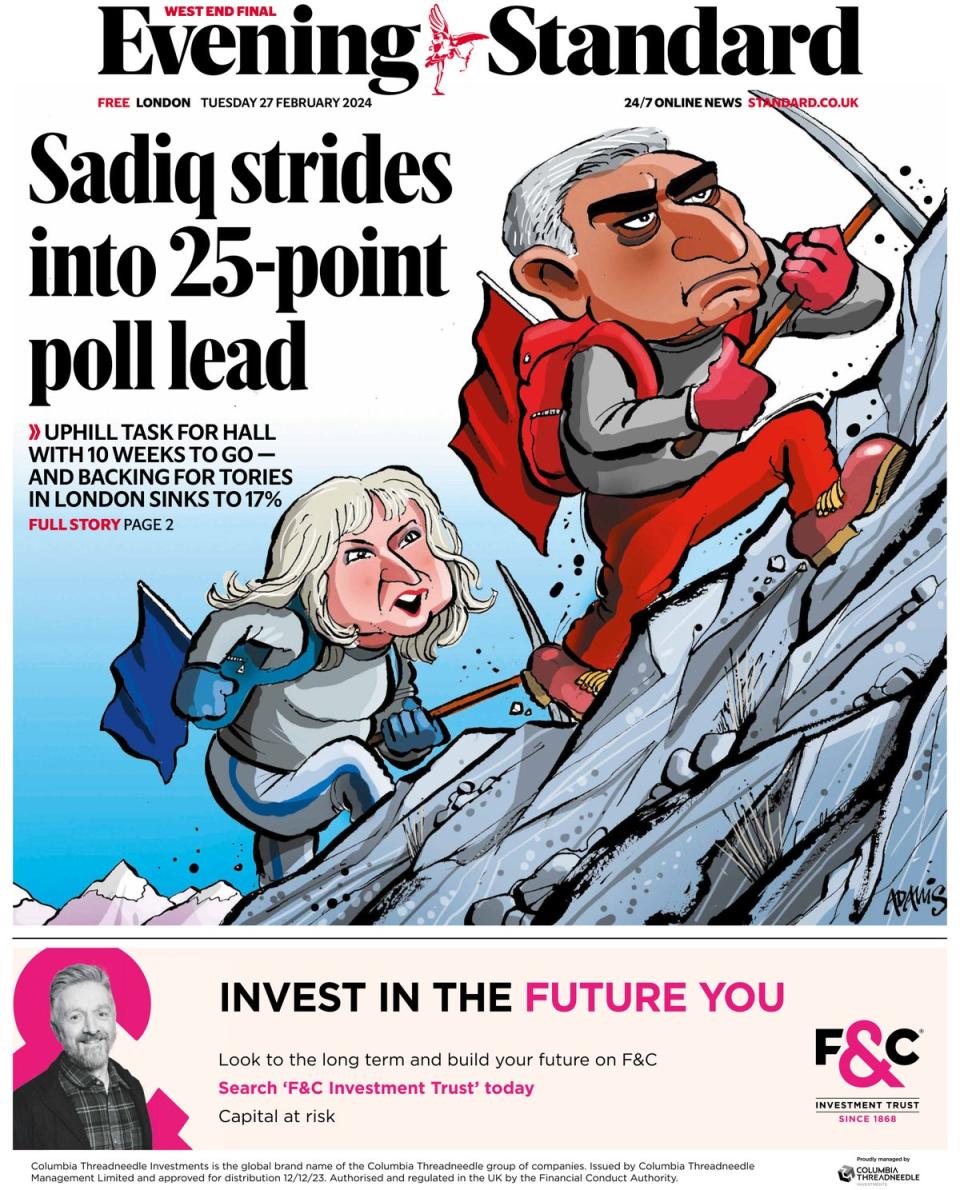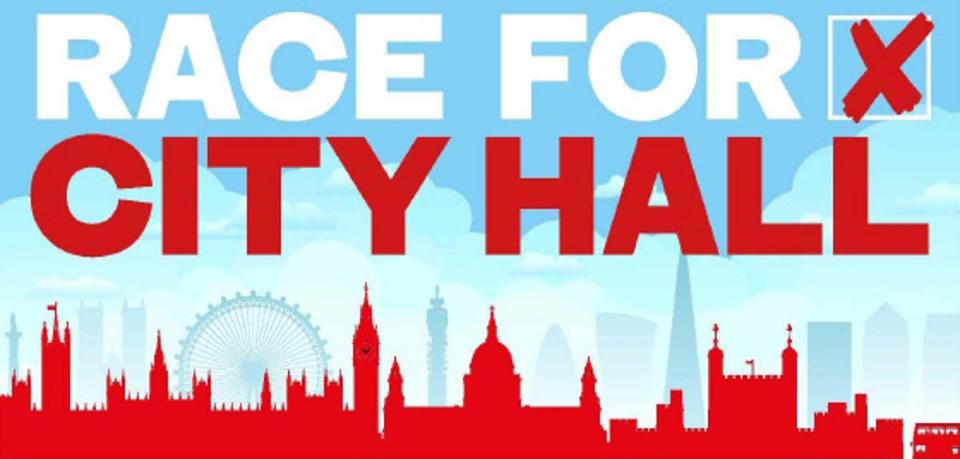Sadiq Khan has 25-point lead over Susan Hall in London mayoral race, new poll finds

Sadiq Khan has a 25-point lead over Susan Hall with just ten weeks to go before the London mayoral election, an exclusive new poll revealed on Tuesday.
The Labour candidate is on 49 per cent and his Tory rival 24 per cent, according to the YouGov survey for the Mile End Institute at Queen Mary University of London.
With the clock ticking towards the May 2 mayoral election date, Mr Khan appears to be heading for a third term in City Hall even though only around a quarter of Londoners say they are satisfied with him.
Even in Outer London he leads Mrs Hall by 46 per cent to 27 per cent, and in Inner London by 54 per cent to 19 per cent, according to the results which exclude “don’t knows” and “would not vote”.
A fifth of Londoners (21 per cent), though, say they don’t know who they would vote for if there were a mayoral election tomorrow.

Dr Elizabeth Simon, postdoctoral researcher in British politics at QMUL, said: “If a sizeable proportion of currently undecided voters turned out to vote in the May 2024 contest, and if the majority supported the Conservative candidate, the race could get tighter.
“However, it appears unlikely, based on current figures, that this would be enough to shift the result in Hall’s favour.”
The findings come despite just 27 per cent of Londoners saying they are satisfied with the way Mr Khan has performed since becoming mayor, with 45 per cent dissatisfied, giving him a net rating of -18.
Dr Simon added: “Our polling clearly shows that Londoners have widespread concerns about policing, crime and personal safety in the city, and that many also worry about the affordability of living in London and their ability to access good-quality health services, in a timely manner.
“Addressing these concerns should be key priorities for the mayoral candidate elected in May 2024.”
In April 2021, Mr Khan had a lead over his Tory rival Shaun Bailey of around 20 points in the mayoral contest.
When asked to pick up to three of the most important issues facing London:
52 per cent said policing, crime and personal safety
46 per cent said provision of affordable, quality homes
37 per cent said provision of health services in the capital
25 per cent said affordability of public transport
21 per cent said levels of taxation in the capital
17 per cent said quality of the environment
In the actual election in May, the Labour candidate gained 1,206,034 votes, or 55.2 per cent, compared to the Tory’s 977,601, 44.8 per cent, a gap of 10.4 per cent.
The smaller gap is believed to have been down at least partly to “undecided” voters deciding to back Mr Bailey and the low turnout.
Uncertainty over this year’s result, compared to 2021, is greater given the change of the voting system being used to first-past-the-post.
The switch means Londoners get a single vote for who they want to be mayor rather than a first and second choice under the previous system.
Two thirds, 66 per cent, of Londoners aged 18-24 say they back Mr Khan, compared to just eight per cent for Mrs Hall, according to the poll.
For the 25 to 49 age group the respective split is 55 per cent to 16 per cent, 50 to 64-year-olds it is 43 per cent to 26 per cent, while Mrs Hall is ahead by 48 per cent to 31 per cent among Londoners aged 65 and over.
Older people tend to turn out to vote at elections more than younger adults.

YouGov tweaked its London mayoral poll weighting for this latest survey to more accurately reflect turnout patterns in the city where fewer people vote in mayoral elections than in national elections.
So, its latest findings are not directly comparable to its previous polls.
The new figures would have been expected to show a slightly smaller Labour lead.
But they are still remarkably similar to previous surveys, weighted to national voting, including one by YouGov in October last year which put Mr Khan on 50 per cent and Mrs Hall 25 per cent.
Some other polls, by more recently established organisations and weighted to the past mayoral election, have suggested there is only a small gap between Mr Khan and Mrs Hall.
* YouGov interviewed 1,113 adults in London online between February 12 and 19. Data are weighted.

 Yahoo News
Yahoo News 
